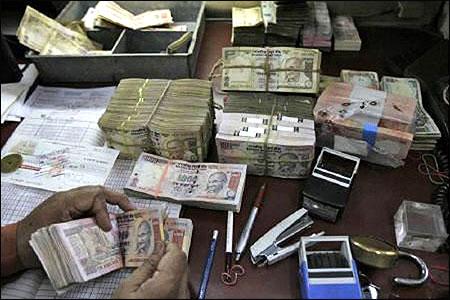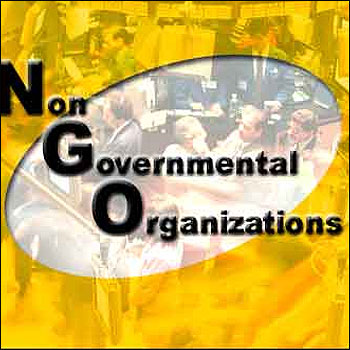
The meeting offered condolences to the millat and families of prominent leaders of the community who passed away recently and prayed for their souls, especially Maulana Muhmmad Safiullah, Shaikhul Hadees, Madrasa Miftahul Uloom Jalalabad (died 2 March 2012); Hazrat Syed Mohammad Izhar Ashraf (1934-2012), Chief Patron of All Indian Ulama and Mashaikh Board (AIUMB) and a Sufi leader, Sajjadah Nashin of Khanquah Ashrafia Hasania of Kichowcha Sharif, died at Delhi on 22 February 2012; Maulana Zeeshan Hidayati, well-known Shia scholar, community leader and active AIMMM member, died in Varanasi on 23 December; Ziaul Haq ‘Soz’ Haqqi Dehlawi, social and political activist, Delhi Congress leader, poet and a former member of Delhi State Haj Committee - died of heart attack in Delhi on 22 December; Dr. Javed azam, President of Jamia Salfia Banaras, a Hadees scholar - died of heart attack in Banaras on 23 December; Prof. Farhana Siddiqi, former President of Jamia Millia Islamia’s Department of Arabic - died at a Delhi hospital on 31 December 2011; Dr Abdul Haleem Owais, Islamic historian of Egypt, professor of history in Riyadh’s Imam University and Egypt’s Zagaziq Uni. (1943-2011) – died on 11 December 2011; Nawab Rahmatullah Khan Sherwani, former Pro-Chancellor of AMU - died on 10 January at the age of 83 years; Khwaja Abdul Khaliq, senior journalist and former Director of PIB’s Urdu Unit in Information and Broadcasting ministry died of heart attack on 18 January in Delhi; Mufti Muhammad Aslam Rizvi, a religious scholar of Bihar, died on 6 January in Patna; Azizur Rahman, Congress leader and a former minister of UP died on 7 January 2012; Shujauudin Sajid alias Shuja’ Khawar, noted Urdu poet and former IPS officer died of heart attack in Delhi on 19 January 2012; Dr. Fareed Parbati, a noted Urdu poet of Kashmir, died on 14 Dec. 2011; Mazhar Imam, prominent Urdu poet, writer, critic, died on 30 January 2012; Kerala’s Governor M.O. Hasan Farook, who earlier he served as governor of Jharkhand, chief minister of Pondicherry three times, and India’s ambassador to Saudi Arabia - died on 26 January 2012 at Chennai; Anis Suhrawardy, noted Supreme Court lawyer, died on 24 January 2012; Kunwar Akhlaq Muhammad Khan ‘Shaharyar’, famous poet, former Urdu professor at AMU, author and critic and winner of many prestigious literary awards, including Sahitya Academy and Jnanapeeth Awards, Ghalib Award for Poetry etc. - died at Aligarh on 13 February 2012; Maulana Syed Waqar Ali, a religious scholar and Sheikhul Hadees at Mazahirul Uloom (Waqf) of Saharanpur - died on 11 February 2012; Maulana Mufti Khurshid Alam, Shaikhul Hadees of Darul Uloom Deoband and a prominent religious scholar died on 7 February 2012; Maulana Abu Bakar Ghazipuri, senior religious scholar and researcher -died in Delhi on 8 February 2012; and Prof. Mughni Tabussam, prominent poet, scholar, critic and author – died in Hyderabad on 15 February 2012.
Apart from discussing organisational matters and passing the budget for 2012-2013, the meeting deliberated on a number of milli, national and international issues and passed a number of resolutions which are as follows:
4.5% Reservation
The AIMMM welcomes as a first but inadequate step the 4.5% reservation offered by the Central government to “minority” OBCs which means the share available to the Muslim OBCs out of this quota will be much less as other minorities too are included in this. The AIMMM urges the central government to demarcate and disaggregate the shares of various minorities in this and any other scheme for minorities according to their ratio in each state. The AIMMM urges the central government to include Muslim and Christian Dalits at the earliest in the SC/ST quota, in order to remove a historic injustice.
Mishra Commission report
The AIMMM urges the central government to quickly move to the urgent and full implementation of the 10% reservation for Muslims recommended by Misra Commission and urges the government to table it in Parliament without any further delay. The AIMMM reiterates that the available reservation should be allocated on the basis of backwardness alone with no share for the creamy layer and well-off sections of the Muslim minority.
Gujarat
The AIMMM registers its dismay that 10 years down the line, the victims of the state-sponsored pogroms of 2002 are yet to receive justice due to the delaying and obfuscating tactics of the Modi Government. The victims have not been properly rehabilitated and around 60,000 of them are still displaced and continue to live as refugees in their own homeland which is a matter of shame for the whole country. The central government should take the initiative to rehabilitate them inside and outside Gujarat like the migrants of Kashmir. Moreover, the origin of the fire that burnt coach no. 6 of Sabarmati Express is yet to be conclusively probed and established. It is time for the central investigative agencies to go into the origin and reality of this fire in S-6. AIMMM salutes brave people like Zakia Jafari, Teesta Setalvad, Sanjiv Bhatt, Sreekumar and Mukul Sinha who continue the struggle for the victims of Gujarat.
Jammu & Kashmir
AIMMM, after detailed deliberation on the situation in the J&K, is of the view that the present apparent peace is managed by oppression. Murder by security personnel is still treated as accidental firing. The commission of enquiry ordered by the court after the murder of as many as 118 innocent youth in 2010 is yet to submit its report. Political prisoners continue to be behind bars in and outside the state. Both the Union and state governments lack sincerity as they never bothered to implement the recommendations of the five working groups appointed by Prime Minister Manmohan Singh. Even the recent report of Interlocutors has not been made public so far. AIMMM demands the urgent release of political prisoners, implementation of the recommendations of the aforesaid five working groups and restoration of Autonomy as recommended by Justice Saghir Ahmed. AIMMM also stresses the immediate withdrawal of AFSPA from whole of Jammu & Kashmir and Manipur where it has been misused to the hilt and has created a climate of fear for ordinary people and impunity for the men in uniform who are free to violate rights and kill innocents at will. The thousands of unnamed graves in Kashmir are a living testimony to this national disgrace. There is no point for AFPSA to remain in force in J&K where hardly 200 militants remain according to official sources.
Fresh attacks on Muslim youth in the name of terrorism
The AIMMM is extremely seriously alarmed at the fresh wave of arrests of innocent Muslim youth on mere suspicion and without any proof from areas like Delhi’s Okhla locality and certain areas of Bihar and Jharkhand, amid serious discord within Delhi Police and Maharashtra ATS over persons sought to be arrested while NIA has pronounced youths arrested by Delhi Police as innocent; yet the spate of arrests on mere suspicion continues. The AIMMM warns the central and state governments not to create an artificial environment conducive to spread discontent and disaffection among the community which has serious doubts about this renewed drive. At the same time, AIMMM fails to understand why saffron terrorists are being treated with kid gloves and some of their masterminds mentioned by name in Malegaon and Ajmer chargesheets remain untouched. AIMMM demands the central government to compensate and rehabilitate innocent Muslim youths who are acquitted after years in jail. The AIMMM condemns the surreptitious ban clamped on SIMI for another period of two years while five of its appeals are still pending in the Supreme Court. The AIMMM demands the central government to issue a white paper on the so-called Indian Mujahidin which the Indian Muslim community believes is a creation of the Intelligence Bureau as a tool to malign Muslim youth.
Christians in J&K
Christian organisations in India have unleashed a false propaganda that Christians are being forced out of the Kashmir Valley which is not correct. AIMMM urges the Church within and without J&K to desist from such false propaganda which does not serve anyone’s interest.
Creeping saffronisation in M.P.
The AIMMM registers its alarm and displeasure at the continued saffronisation of the state, especially the educational system, in M.P. Surya Namaskar and the introduction of Gita in school syllabus are two clear examples of this policy which flies in the face of the country’s secular Constitution. The Central Govt., through HRD ministry, should intervene and ensure that the secular ethos of the educational system all over India remains untouched.
Shia-Sunni riots
The AIMMM strongly condemns the Shia-Sunni riots which were engineered in Lucknow during the Prophet’s (pbuh) birthday celebrations on 5 February. The AIMMM is of the firm view that anyone rekindling this extinguished fire is an enemy of Islam and Muslims. It is the responsibility of both Shia and Sunni leaders and masses to frustrate such sinister plots to harm Muslims and bring back the spectre of fratricidal fights in Lucknow which,alhamdu lillah, are a thing of the past now.
Admission to private schools
A survey by a Delhi NGO has shown that the intake of Muslim children in the capital’s top private schools this year hovered between nil and under one percent with some rare exceptions. Perhaps a survey of other cities across the country will come up with similar results. This speaks volumes about the discrimination faced by Muslim children in private schools. The AIMMM feels that just as the access of neighbourhood and weaker section students has been ensured through government rules for admission, minority students too should have a quota in these schools proportionate to their ratio in the local population. Moreover, the AIMMM urges the Muslim community to come forward to establish good schools as well as raise the standards of our existing schools so that we could be spared of this continued humiliation and discrimination.
India-Israel ties
AIMMM is alarmed at the ever-increasing Indo-Israeli ties, especially of the so-called “strategic” kind. Israel today is the only country occupying other people’s lands and follows racist policies against its Arab citizens in Israel as well as in the occupied territories. While Israel remains in occupation and denial of Palestinian rights and continues to flout hundreds of UN resolutions, only skeletal diplomatic relations could be maintained with it. AIMMM is further alarmed at the continuous Israeli attempts to create a lobby within the Indian Muslim community, which is a very dangerous attempt to create a fifth column.
National Commission for Minorities Educational Institutions
The AIMMM condemns the recent divestment of the chairman of the National Commission for Minorities Educational Institutions (NCMEI) of his administrative and financial powers which only demonstrates the central government’s insincerity towards its avowed policy of promoting minority education. The AIMMM demands the HRD ministry to forthwith restore the NCMEI chairman’s full powers and stop interfering in the workings of this autonomous commission.
Syria
The AIMMM, while supporting the Syrian people’s struggle for true democracy, rule of law and human rights in their country, offers guarded support to the belated referendum carried out by the Assad regime hoping that the regime will now prove its sincerity by honestly implementing the new reforms in earnest and without delay and stop the bloodshed of innocents in the country. The AIMMM warns foreign powers, especially the US and NATO, to keep off from Syria and let its people solve their problems themselves. A military intervention in Syria will only hurt the Syrian people as it has earlier hurt the Libyan, Iraqi and Afghan peoples.
Iran
The AIMMM is alarmed by the continuous illegal Israeli threats to attack Iran amid American silence and covert support by providing Israel with the necessary gadgets, rockets and smart bombs to attack Iran which is a compliant NPT signatory and whose nuclear facilities are open to the IAEA inspectors while Israel illegally possesses over a thousand nuclear bombs and refuses to sign NPT. The AIMMM warns that Indian Muslims will hold both Israel and the US as the culprits if Iran is attacked in a flagrant aggression on a peaceful nation which will reopen the raw wounds of Afghanistan and Iraq.
[end]
President
ALL INDIA MUSLIM MAJLIS-E- MUSHAWARAT
[Umbrella body of the Indian Muslim Organizations]
D-250, Abul Fazal Enclave, Jamia Nagar, New Delhi-110025
Tel.: 011-26946780 Fax: 011-26947346 Email: mushawarat[@]mushawarat.com 



 मजदूरी और अन्य छोटे-मोटे व्यवसाय करके पेट भरनेवाले समाज के लिए अक्सर अपने स्वामित्व के घर की कल्पना सपना ही रहती है| मुंबई जैसे महानगर में तो यह और भी असंभव सी बात बन जाती है| लेकिन सतीश हावरे नाम के एक व्यक्ति ने, रिक्षा चालक, सब्जी-भाजी बेचने वाले, मजदूरी करने वाले लोगों को नवी मुंबई जैसे महानगर में, उनके स्वामित्व का घर देना संभव कर दिखाया है|
मजदूरी और अन्य छोटे-मोटे व्यवसाय करके पेट भरनेवाले समाज के लिए अक्सर अपने स्वामित्व के घर की कल्पना सपना ही रहती है| मुंबई जैसे महानगर में तो यह और भी असंभव सी बात बन जाती है| लेकिन सतीश हावरे नाम के एक व्यक्ति ने, रिक्षा चालक, सब्जी-भाजी बेचने वाले, मजदूरी करने वाले लोगों को नवी मुंबई जैसे महानगर में, उनके स्वामित्व का घर देना संभव कर दिखाया है| महाराष्ट्र राज्य के विदर्भ क्षेत्र में के पथ्रोड इस छोटे से गॉंव से नौकरी के लिए मुंबई में आये सतीश हावरे ने मेहनत और ईमानदारी से काम करते हुए लोगों का विश्वास प्राप्त किया और आर्किटेक का व्यवसाय आरंभ किया; फिर और एक कदम आगे बढ़ाते हुए ‘हावरे बिल्डर्स’ की स्थापना की| प्रगति की इन नई मंजिलों पर पहुँचने के बाद भी, सतीश, मुंबई में मजदूरी और अन्य छोटे-मोटे काम करके जीवनयापन करनेवाले लोगों की घर की समस्या को भूले नहीं थे| उन्होंने इन गरीब लोगों को नवी मुंबई में ढाई-तीन लाख रुपयों में घर देने की योजना बनाई| लेकिन सतीश के इन ग्राहकों के पास इतने भी पैसे नहीं थे| फिर उन्होंने ही इन लोगों को ऋण दिला देने की भी व्यवस्था की| नवी मुंबई के खारगर में बनी श्रमिक इमारत सतिश के ऐसे ही प्रयासों का फल है| आज इस बिल्डिंग में २०० परिवार रहते है| नौकरी के लिए मुंबई में आये सतीश, अब आर्थिक दृष्टी से पिछड़ें लोगों के घर का स्वप्न साकार करनेवाले आदमी बन गए था|
महाराष्ट्र राज्य के विदर्भ क्षेत्र में के पथ्रोड इस छोटे से गॉंव से नौकरी के लिए मुंबई में आये सतीश हावरे ने मेहनत और ईमानदारी से काम करते हुए लोगों का विश्वास प्राप्त किया और आर्किटेक का व्यवसाय आरंभ किया; फिर और एक कदम आगे बढ़ाते हुए ‘हावरे बिल्डर्स’ की स्थापना की| प्रगति की इन नई मंजिलों पर पहुँचने के बाद भी, सतीश, मुंबई में मजदूरी और अन्य छोटे-मोटे काम करके जीवनयापन करनेवाले लोगों की घर की समस्या को भूले नहीं थे| उन्होंने इन गरीब लोगों को नवी मुंबई में ढाई-तीन लाख रुपयों में घर देने की योजना बनाई| लेकिन सतीश के इन ग्राहकों के पास इतने भी पैसे नहीं थे| फिर उन्होंने ही इन लोगों को ऋण दिला देने की भी व्यवस्था की| नवी मुंबई के खारगर में बनी श्रमिक इमारत सतिश के ऐसे ही प्रयासों का फल है| आज इस बिल्डिंग में २०० परिवार रहते है| नौकरी के लिए मुंबई में आये सतीश, अब आर्थिक दृष्टी से पिछड़ें लोगों के घर का स्वप्न साकार करनेवाले आदमी बन गए था| सतीश आज हमारे बीच नहीं है| लेकिन सामाजिक भान रखकर काम करना ही समाजसेवा है, इसी संकल्पना के आधार पर सतीश हावरे फाऊंडेशन काम कर रही है| यहॉं काम करनेवाले मजदूरों के लिए फाऊंडेशन ने दवाखाना शुरू किया है; यहॉं उनका नि:शुल्क उपचार किया जाता है| उनके बच्चों के लिए स्कूल चलाई जाती है| अंग्रजी और मराठी माध्यम की इस स्कूल में अत्यंत कम शुल्क में अच्छी शिक्षा दी जाती है|
सतीश आज हमारे बीच नहीं है| लेकिन सामाजिक भान रखकर काम करना ही समाजसेवा है, इसी संकल्पना के आधार पर सतीश हावरे फाऊंडेशन काम कर रही है| यहॉं काम करनेवाले मजदूरों के लिए फाऊंडेशन ने दवाखाना शुरू किया है; यहॉं उनका नि:शुल्क उपचार किया जाता है| उनके बच्चों के लिए स्कूल चलाई जाती है| अंग्रजी और मराठी माध्यम की इस स्कूल में अत्यंत कम शुल्क में अच्छी शिक्षा दी जाती है| इसके साथ ही दुर्गम क्षेत्र के लिए फाऊंडेशन द्वारा बूक-बँक और अभ्यासिका उपक्रम चलाया जाता है| करीब एक सौ स्थानों पर यह उपक्रम चल रहा है| महिलाओं के लिए इस फाऊंडेशन ने ‘महिला स्वावलंबन औद्योगिक सहकारी संस्था’ शुरू की है| इस संस्था में महिलाओं को रोजगार उपलब्ध होता है|
इसके साथ ही दुर्गम क्षेत्र के लिए फाऊंडेशन द्वारा बूक-बँक और अभ्यासिका उपक्रम चलाया जाता है| करीब एक सौ स्थानों पर यह उपक्रम चल रहा है| महिलाओं के लिए इस फाऊंडेशन ने ‘महिला स्वावलंबन औद्योगिक सहकारी संस्था’ शुरू की है| इस संस्था में महिलाओं को रोजगार उपलब्ध होता है| सतीश के स्मृतिदिन के उपलक्ष्य में विविध कार्यक्रम आयोजित किए जाते है| समाजकार्य करने वाले लोगों को पुरस्कृत भी किया जाता है|
सतीश के स्मृतिदिन के उपलक्ष्य में विविध कार्यक्रम आयोजित किए जाते है| समाजकार्य करने वाले लोगों को पुरस्कृत भी किया जाता है|



